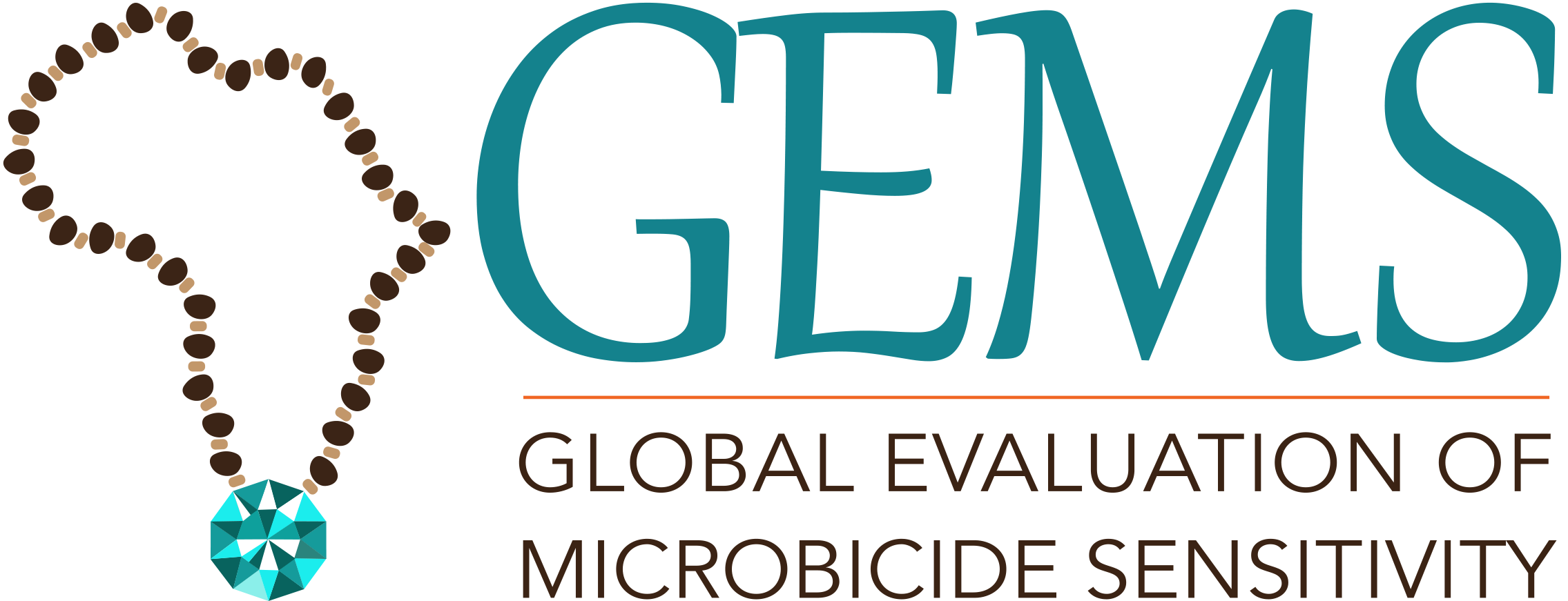GEMS informs policies and defines programmatic considerations related to use of ARV-based HIV prevention products and risk of resistance.
- Genital swabs testing begins and assay development is underway.
- Initial oral PrEP modeling completed.
- Collaboration in Kenya and Namibia continues.
Genital swabs testing begins and assay development is underway. GEMS has collaborated with Partners PrEP and the Microbicide Trials Network (MTN) to obtain vaginal swabs from seroconverters to determine if drug resistance occurred in the genital tract (rather than the plasma) of women who seroconverted on active TDF/FTC product. Assay development for resistance testing in swabs is in progress, and GEMS has been evaluating methods to optimize the amount of HIV RNA obtained from a dried blood spot (DBS) sample. The lab team has been modifying standard HIV genotyping protocols for DBS to simplify the procedure while also working on adapting next-generation sequencing protocols to increase throughput and lower testing cost.
Initial oral PrEP modeling completed. GEMS is modeling the cost-effectiveness of different HIV-testing approaches for people starting and continuing on oral PrEP, as well as on potential use of resistance testing in people who have become infected despite being on oral PrEP. The modeling team has completed initial model calibration to KwaZuluNatal and disseminated preliminary results to colleagues. Currently, GEMS is exploring all feedback received to improve calibration.
Collaboration in Kenya and Namibia continues. GEMS is actively participating in NASCOP oral PrEP planning meetings and reviewing national training materials and tools. Additionally, the team has written a draft implementation plan that is currently under review by NASCOP, Bridge to Scale and DREAMS. The implementation plan describes how GEMS may support oral PrEP projects to collect dried blood spot (DBS) samples and analyze resistance on oral PrEP users who seroconvert. GEMS representatives also attended Kenya’s oral PrEP TWG meeting in November and participated in the Research and Implementation Science and Service Delivery/M&E subcommittee meetings. Finally, GEMS has continued discussions with the Namibia University of Science and Technology (NUST) and held meetings with NUST and other stakeholders, including the Namibia Ministry of Health and the Namibia Institute of Pathology, during a country visit in February.
No Responses
Leave a Reply

